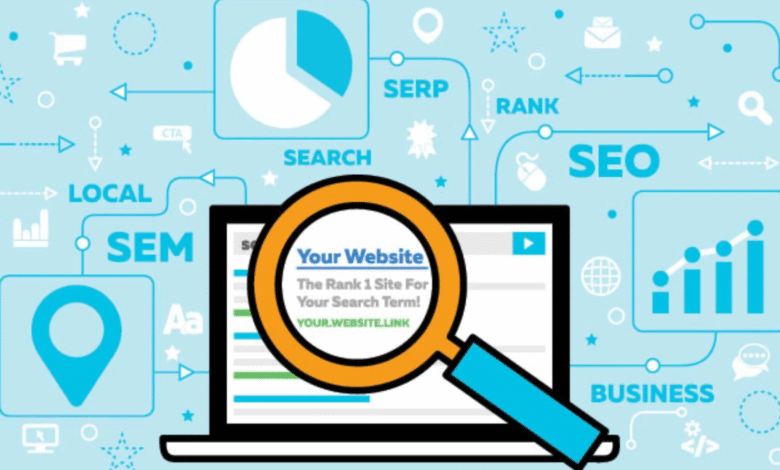Boosting Your Small Business: The Power of Local SEO

Key Takeaways:
- Local SEO enhances your business’s visibility in geographically relevant searches.
- Optimizing for local search can lead to increased foot traffic and higher conversion rates.
- Implementing local SEO strategies is a cost-effective way to compete with larger brands.
Understanding Local SEO
Local Search Engine Optimization (SEO) is a cornerstone digital marketing strategy that empowers small businesses to connect directly with consumers in their immediate area. Unlike traditional SEO that targets a wide geographic audience, local SEO zeroes in on optimizing your online presence for people looking for products or services within a specific geographical area. When potential customers search for terms accompanied by phrases like “near me” or reference specific neighborhoods and cities, they intend to find a solution ASAP and close to home. Harnessing local link building services can further solidify your business’s authority within your neighborhood or city, offering an edge against the competition by establishing your site as a trustworthy local source. Local SEO blends technical web strategies—such as optimizing your Google Business Profile and ensuring accurate citations—with creative content highlighting your community involvement or neighborhood expertise.
Why Local SEO Matters for Small Businesses
Local SEO is crucial in today’s competitive market, as mobile search and voice assistants drive users to local searches for services. This direct connection leads to increased store visits, appointments, and calls. Local SEO targets consumers who intend to purchase locally, resulting in better returns for every dollar invested.
Key Benefits of Local SEO
Local SEO offers several benefits for small businesses, including increased online visibility, higher conversion rates, cost-effective marketing, and a competitive advantage. By optimizing your online presence for local search, your business can be featured in Google’s “Local Pack,” providing easy access to business information. This strategy also leads to higher conversion rates, with 76% of those conducting a local search visiting a related business within 24 hours and nearly a third completing a purchase. Local SEO particularly appeals to small businesses facing tight budgets, as it delivers results without breaking the bank. Additionally, investing in local presence can help businesses become the trusted local provider, resulting in brand loyalty, referrals, and recurring business.
Implementing Local SEO Strategies
1. Optimize Your Google Business Profile
A complete, accurate, and regularly updated Google Business Profile is central to succeeding in local SEO. Start by entering correct business information, such as name, address, phone number, business hours, and categories. Supplement these basics with high-quality photos that showcase your location, products, team, and community involvement. Keep the profile active by sharing timely updates about new services, promotions, or special events. Remember, consistency is crucial—not just on Google, but across every online listing or directory. Inconsistencies in your NAP (Name, Address, Phone) data can confuse potential customers and hurt your search credibility.
2. Encourage Customer Reviews
Positive online reviews do more than look good; they directly impact your business’s visibility in local search rankings. Actively encouraging happy customers to leave honest feedback on your Google Business Profile and other review sites solidifies your reputation. Respond to every review—thank those who leave praise and address criticism with empathy and practical solutions. This level of engagement demonstrates your dedication to customer service, fosters trust, encourages repeat business, and may even prompt others in your locality to try your services based on the stories and ratings they see.
3. Use Local Keywords
Incorporating relevant local keywords throughout your website is vital. Identify the phrases and search queries your community uses to find businesses like yours—incorporating location-based terms into your titles, metadata, and content. Consider specifics: neighborhood names, landmarks, city-specific events, and colloquial terms. Offering thorough, location-specific answers ensures that search engines clearly understand your business’s local relevance, helping you rise in the rankings for searches performed in your vicinity. Strategic use of local keywords improves discoverability and reassures customers they’ve found a business that truly understands their local context and needs.
4. Build Local Backlinks
High-quality local backlinks signal to search engines that your business is a recognized and respected part of the local digital ecosystem. Seek opportunities with regional news publications, community organizations, and local business directories. These relationships can be nurtured through sponsorships, co-hosting events, or partnerships with other businesses in your neighborhood. Additionally, earning mentions and links from reputable sources boosts authority and generates direct traffic. If you want a head start, professional local link-building services can open doors to new backlink opportunities, allowing your business to quickly expand its digital reach and influence.
Measuring Local SEO Success
Local SEO efforts can be evaluated through key performance metrics like traffic, rankings, and engagement on Google Business Profile. Free tools like Google Analytics provide insights into the effectiveness of strategies. Mastering local SEO is an ongoing, continuous improvement, engagement, and adaptation journey. Regular refining and responsiveness to local search algorithms and customer behavior can lead to measurable business growth and sustainability.





